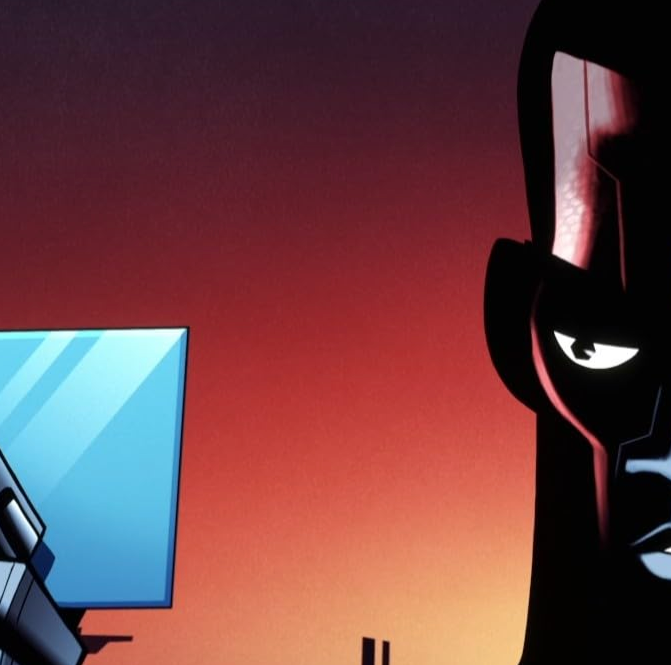- cross-posted to:
- technology@beehaw.org
- technews@radiation.party
- cross-posted to:
- technology@beehaw.org
- technews@radiation.party
Anyone else have a similar experience with one of these drives?
This is exactly why I invested 250x the cost of one SSD into my raid setup. It’s 100 SSD’s in raid1 in a huge rack which slides vertically on 4 guide poles.
I sit under the contraption and lean forward as far as I can, before lowering it onto my back. This method allows me to suck my own cock with ease, so that I don’t need to fellate myself on public forums
so that I don’t need to fellate myself on public forums
But you still do anyway, because you like the way it feels
I hope you’re getting off on redundancy and not a backup. Because RAID.is.not.a.backup.
(I can even gargle my balls)
Raid doesnt even protect against bit rot either. It doesn’t matter how many disks you write to even in a raid one array you are still vulnerable. Unless you have a high end raid card that does block level checksuming your raid array will not go back and verify previously written to data is still correct. If it does have checksuming it still isn’t smart enough to know which drive is the is correct and will lock the array in the best case.
ZFS pools do checksumming, snapshotting, etc.
This is the best summary I could come up with:
This isn’t a drive he purchased many months or years ago — it’s the supposedly safe replacement that Western Digital recently sent after his original wiped his data all by itself.
SanDisk issued a firmware fix for a variety of drives in late May, shortly after our story.
But data recovery services can be expensive, and Western Digital never offered Vjeran any the first time it left him out to dry.
Honestly, it feels like WD has been trying to sweep this under the rug while it tries to offload its remaining inventory at a deep discount — they’re still 66 percent off at Amazon, for example.
Unfortunately, the broken state of the internet means Western Digital doesn’t have to work very hard to keep selling these drives.
I’d also like to say shame on CNET, Cult of Mac and G/O Media’s The Inventory for writing deal posts about this drive that don’t warn their readers at all.
I’m a bot and I’m open source!
Ugh, I literally just fucking bought this drive
I wonder if it’d be worth returning if you’re still in the window. I don’t know how common the issues are though. Maybe check out the Ars Technica article someone linked?
Well I bought it for mass media storage for an upcoming trip. So I’ll just see how it goes and consider options afterward
But then wouldn’t you lose the data from your trip in the experiment though?
You’re probably fine, all drives have failures and I haven’t seen anything to indicate this is a widespread issue with the drive.
The manufacturer has acknowledged it’s an issue and has issued at least one patched firmware. This isn’t a “luck of the draw” or isolated issue.
Yes, actually.
I do have multiple redundancy set up , but I’ve had many a sandisk drive fail, and a few wd my passports too. Now, the WDs were refurbs that I throw media on for the home network, or plugging into my shield, or like that. So I am never surprised when they just don’t work one day.
But the sandisk were brand new, and failed within weeks. It made me give up on the brand entirely. I just don’t like having to deal with my backups failing at that kind of rate. They are good about replacing them, but damn. I think I did two swaps on the one drive, three on another, and then just demanded a refund from the third. The one I use on my dad’s computer was the triple fail, and we finally got one that’s stayed working for a while now.
The other died after six months and I just trashed it and gave up.
I’ve also had horrible experiences with sandisk sd cards. They could be fakes, what with having bought them via amazon though.
Can’t trust Amazon with shit nowadays. What’s the point of sales if you get fake shit in the first place? I mean, Amazon is sleazy even without the common-binning but for a while they were good with their online shopping.
Also, what data storage solutions do you use now? I’m considering just encrypting my stuff and uploading them to some paid cloud service - atleast then someone else smarter than me is responsible for making sure it’s safe and accessible.
I encrypt anything important and use Google for offsite cloud because I, luckily, only have text and a few gigabytes of images that I want the extra step of encryption for.
Everything else, media and such that’s hard to replace but not important gets put on a drive and swapped out monthly to my sister’s house, and my best friend’s house.
Here, there’s a drive on each PC with that stuff, plus whatever is on the individual PC that gets moved to those drives. I’d have to go look for which is where though. But that’s five copies that I update from my main PC as I get new stuff, so they get moved around a good bit. And there’s a backup that is held as a spare.
But, all my files for the stuff I write are also synced to Dropbox and gdrive hourly when I’m writing, and again at the end of a session. During each session, its autosaved every five minutes because I’m a tad lazy and don’t like rewriting things I just wrote because there’s a power issue out here in the boonies. UPS might be an option, but I don’t always write on the same thing.
I don’t like Google any more, and don’t trust any of the “cloud” services as far as I can spit, but they are stable. I’ve never lost anything from the major services, and the free tiers are enough for my needs of important stuff.
We just lost 3TB of data because we didn’t back it up and stored it on cheap NAND flash
FTFY
Someone didn’t read the story. This is about a known firmware fault that the company is doing its best not to keep quiet. Don’t help them in that work
deleted by creator
There is absolutely nothing to say that the author didn’t have it backed up. He still lost 3TB of files from a new drive which was a replacement sent by the company, with a known fault supposedly fixed.
“Herp derp he should have backed up” is not the takeaway here”
Still, if SSDs fail repeatedly, something’s not right. That’s the point of the article
So because backups exist, everyone should be okay with buying bad hardware?
I know you’re not actually saying that, but countering “this is a known firmware fault” with a reminder that backups should be done sure makes it look like you’re saying that. There’s still value in making sure consumers’ money goes to products that last.
i think it’s the “we just lost 3TB of data” part… either the headline is hyperbole, in which case screw the clickbaint… or they lost 3TB of data which is always a good time to remind people that cheap NAND flash is cheap NAND flash
They should’ve made a better headline
Fuck nuance!
redundancy is key
redundancy is key
redundancy is key
Randomly disconnects = chance for data loss
Though the filesystem plays a role. I have a full metal body Sandisk USB stick that still overheats after a while and then disconnects (has a heatsink on top now) but ext4 handles that fine. I know that Fat32 has no journaling and NTFS is a tad bit sensible to disconnects. Don’t know about exfat.
My external SSD I put together with a “nice” enclosure started dropping to 5MB/s on any machine. I don’t trust most external SSDs anymore.
I DO trust my RPi case with built-in m.2 USB adapter thingy, as it’s running full speed in that thing, no issues with speed dropping.
I’d like to know more about this adapter thingy.
Oh it’s AMAZING. It’s an expensive case for the Raspberry Pi 4 models, called Argon. It’s 45USD or so. BUT! It CHANGES THE SHITTY MICRO HDMI PORTS INTO TWO REAL HDMI PORTS!
It also has a little slot for an m.2 SSD inside it, and a tiny USB connector to make it work with a Pi. You can super easily boot from SSD and use a microsd as extra storage. It’s like 10x faster than microSD, it’s wild.
I had bought a different case (that honestly I love) but when I read about this one, I fell in love. Only problem is it only takes SATA m.2 drives, which happened to be the kind in my shitty enclosure.
I use an Asus enclosure and put in a WD ssd. The heat dissipation is better than the sandisk model and it stays connected pretty much always except during travels
Eh, wait, so it’s heath related? Defective firmware causing overheating or too low limits?
Haven’t had that issue, but definitely design related. Mine is a Asus rog enclosure which has better heatsink than sandisk
It’s my biggest peeve with owning this SSD. I can leave it over a weekend and come back to, no lie, 50+ disconnect notifications from MacOS. Shoddy software to say the least…
I use mine for desaster recovery.
Using tineshift to take hourly snapshots of my laptop computer.
I don’t think my laptop and the drive fail at the same time so I think my use case is safe even with these risky drives.
What is the advantage of using this over an USB to SATA adapter?
What the fuck are all these comments?
It’s an article about an unresolved and recurring problem with a popular drive that the ostensibly reputable manufacturer is trying to hide.
But 90% of the comments are people jerking themselves off about how smart they are for using RAID, which is irrelevant to the point of the article… But never miss an opportunity to pleasure yourself in public I guess?
Oh, okay, they just lost 3TB 😋
Fiew … it could have been 4.It’s extremely hard to make, but I was hoping there’s a review website with 100% real user review so this kind of issue can be discovered more easily
reviewmeta tries to do this with Amazon reviews
BRB setting up sync for my OS drive!
Got my gf a 2TB version. She also lost most of her files after 1 month of usage. She uses MacOS. But it’s probably to some degree of personal failure. So not sure if this is relevant.
“I put 3TB of irreplaceable data on a single drive, and want to blame anyone but myself for my data loss”
Go away with this garbage.
I personally have a NAS with 12TB striped over 3 drives, I sure wouldn’t blame WD if one drive failed and I lost everything.
E: this whole comment section is why tech illiterate people shouldn’t really comment on hardware failures like this. The only fact that is know is that the verge faced 2 drive failures and lost 3TB of data due to a lack of safe data storage practices. If they were tech literate they wouldn’t have lost any data.
The verge did not confirm the mode of failure, and therefore the second failure could’ve been completely unrelated to the firmware issue. Nobody knows anything, other than the verge needs to educate themselves on how to properly store irreplaceable data.
The claim here seems to be that the product has an unusual failure rate, the manufacturer has acknowledged the original problem and released a fix, and it does not appear to be fixed. I don’t read it as a sob story about some reporter’s lost data.
Ooh ooooh look at me everybody I’m so much smarter than this IDIOT that expected the devices he PAID FOR to work as advertised and the company to be honest and straightforward with firmware issues and updates
I run this better system than NORMIES and even if it fails (because I’m an idiot) I DONT CARE ABOUT THE DATA on them because iT DiDn’T mATteR tO Me iN tHe fIrSt PlAcE.

PS For people wondering about the second paragraph, check this guy’s other comments in this thread.
Let’s see you bring your raid NAS on an out of country video shoot.Edit: Misread the comment. My reply isn’t addressing the actual point he made.
These drives have a very different use case than a rack mount NAS. They’re portable ruggedized devices for field use, like dumping content from your camera so you can keep shooting. Two would be better but it sounds like a known flaw that is causing random, frequent losses.
Hence why RAID5 is so popular!
I hope you are using a UPS or some form of offline storage if you really can’t afford to loose your data.
I said I couldn’t care about the data, which is the only reason why I’m running a striped pool

















